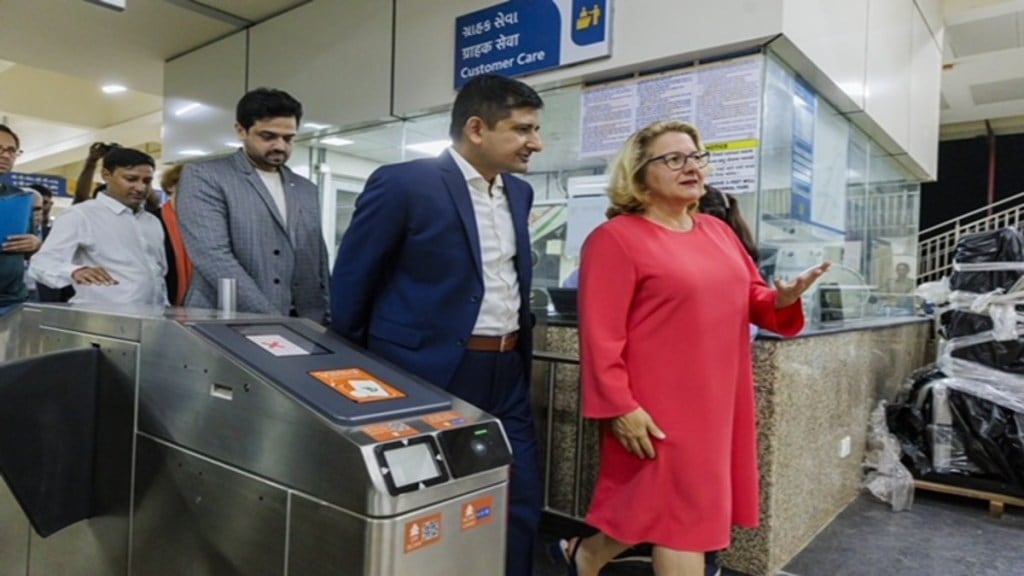Prime Minister Narendra Modi inaugurated a new metro line today in Ahmedabad. The line connects Ahmedabad with the state capital, Gandhinagar, enhancing environmentally friendly transportation for the region’s nine million residents. The inauguration took place alongside the RE-INVEST renewable energy investors conference.
German Development Minister Svenja Schulze, attending as a representative of Germany at the conference, met with Prime Minister Modi earlier. The 600-million-euro project, partially funded through a German development loan, features technology from Siemens, a German firm responsible for the line’s electrification.
Minister Schulze highlighted the significance of the metro line, stating, “India’s cities are growing rapidly, and relying solely on car transport would exacerbate congestion and pollution. The focus on sustainable metro transport in Ahmedabad is a model of Indo-German collaboration that benefits both the environment and the people. This cooperation not only supports India’s development but also aligns with Germany’s interest in global infrastructure investment.”
Ahmedabad, one of India’s largest and fastest-growing cities, has seen increasing traffic due to commuters traveling to Gandhinagar, which is home to a burgeoning technology sector. The existing infrastructure struggled to manage the rising demand, resulting in traffic jams, severe smog, and road safety issues. The new metro line aims to address these problems by offering a climate-friendly and safe transit option. It is expected to serve 120,000 passengers daily, with projections indicating an increase to 330,000 over the next 30 years.
The metro line also provides significant benefits to commuters from less affluent areas and women, offering a reliable and secure mode of transport. The initiative is anticipated to reduce CO2 emissions by 50,000 tonnes annually.
The project exemplifies successful Indo-German cooperation, with the German Development Ministry (BMZ) extending a 100 million euro loan through KfW Development Bank. The total project cost amounted to 611 million euros, with Siemens contributing crucial electrification technology.

